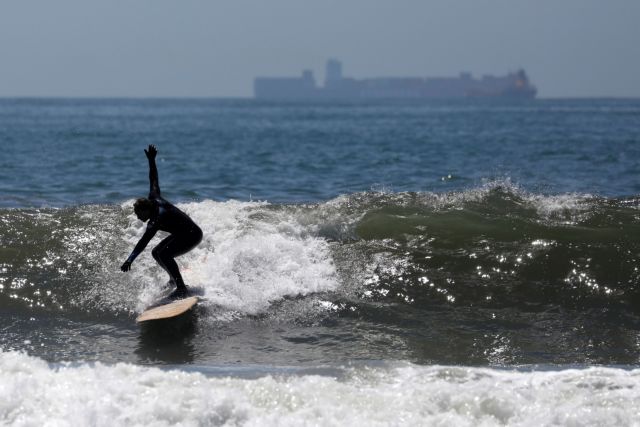According to the International Maritime Organization (IMO), there are an estimated 150.000 shipping merchants in the world who are unable to repatriate due to the pandemic pandemic, as they are prohibited from landing in most ports in the world. Among them are hundreds of Greek sailors, some of whom have already completed or even exceeded 12 months of continuous naval service, which poses risks to their mental and physical health and increases the likelihood of accidents at work. At the same time, so many of their colleagues are facing serious living problems as restrictions on the movement of people who continue to apply in a number of countries preclude them from working.
"The coronavirus has affected our profession in many ways. Now, and our work allows us to get off the ship in a port, to be "grounded" as we say, we are not given the opportunity by the local authorities. There are out-of-pocket colleagues who are on the brink of financial ruin and living on loans. In addition, if a colleague has an accident, it is very difficult - mainly due to bureaucracy - to be able to go out and get the help he needs. Its most important impact Covid-19", but it is the one that concerns the repatriation of the navy", says Petros L., captain of a tanker that is moored in Indonesia, to "NEA". He has been barricaded since the beginning of December and communication with his wife and four-year-old daughter is limited to video calls.
As he explains, in Greek companies the contracts usually have a six-month term, but it is not uncommon for them to expand: “This is also happening under normal circumstances, it is not something unprecedented. But again, it has a different effect on the psychology of the crew than choosing to stay on the ship for a longer period of time, and it has a different effect on not having the option of repatriation. Based on this, a number of operational problems arise. On the other hand, there are crew members - especially from countries with a large number of cases - who are asking to stay longer because they are afraid to return. Be that as it may, work on a ship with tired staff is not done at the right pace and mood. Finally, a ship, in order to be considered navigable, periodically undergoes a series of inspections. Because of the situation, they can't be on time either. "
This is also pointed out by the president of the Panhellenic Union of Retired Captain Themis Daskalakis, emphasizing that all the above endanger the safety of sailors and considers that a solution can only be given by the powerful IMO and national governments for exceptional naval movements. "Safety discounts due to delays in certification combined with the psychological and physical fatigue of crews create a dangerous mix that is not in the interest of either shipowners or workers. The six-month continuous naval service has not been established by chance ", he underlines, adding that suicides have already occurred on foreign ships.
A rough and conservative calculation of Greek sailors directly affected by the peculiar situation imposed by the pandemic puts their number at 600, but that number could be increased tenfold if those who serve on ships under foreign flags are taken into account.
Source: Tanea.gr
